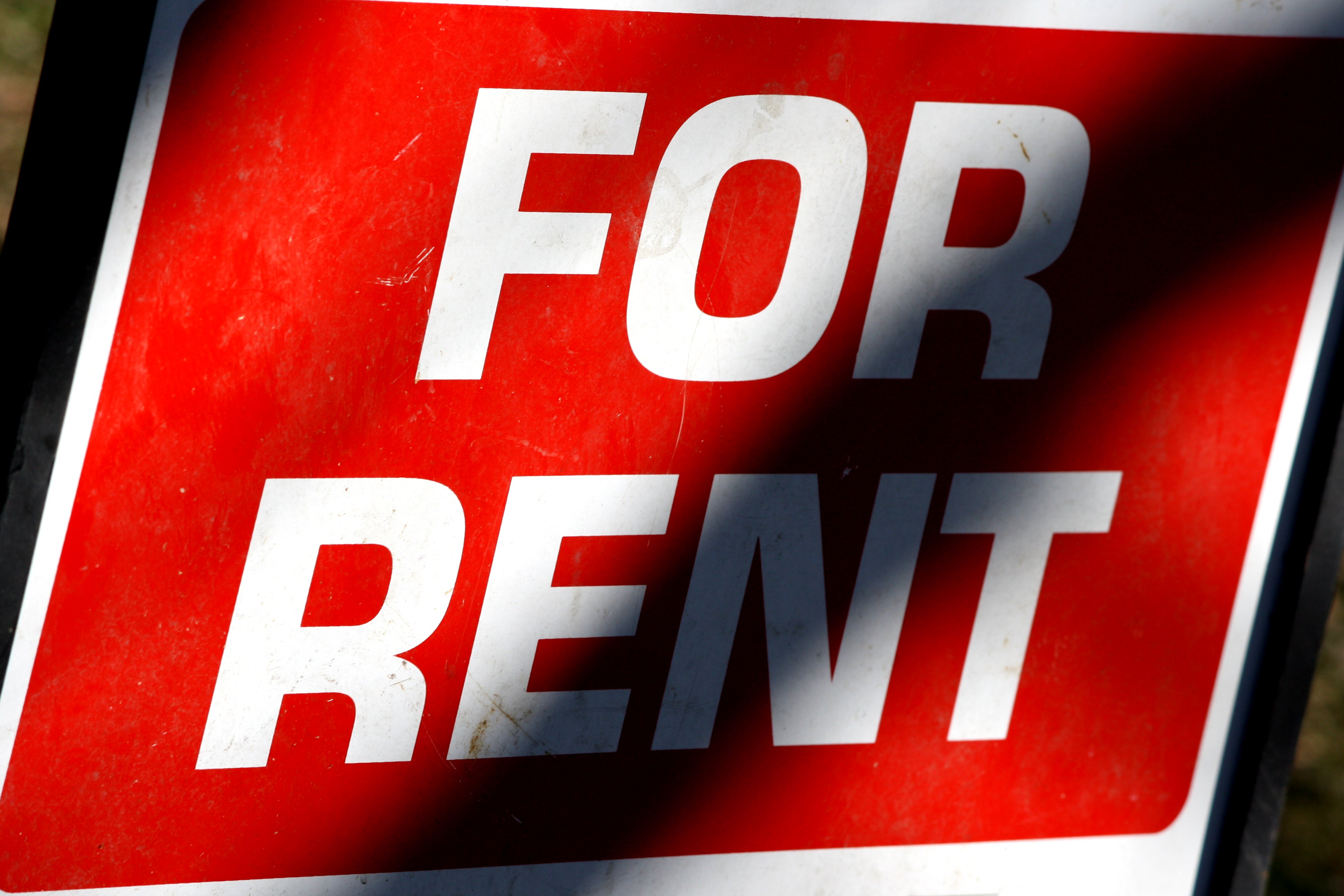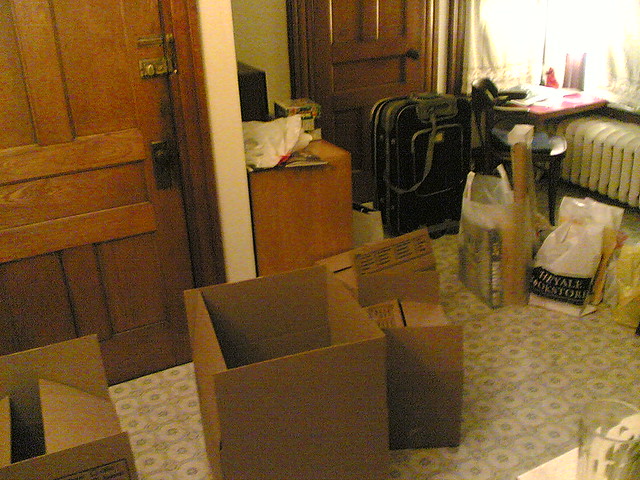
Photo source: Wikimedia http://bit.ly/2jr4fFh
1. Research the area.
Think about the area before you move in. Is it near a hospital? If so, can you hear ambulances all the time? Is it near a noisy pub? Check all the surroundings before you sign. It is up the tenant to do their own research and inspect the dwelling and surrounding area before they sign the agreement and move in.
2. Discuss pets early.
Bring up pets early in negotiations with your prospective landlord; if the landlord does not want pets at the address, then the tenant should look elsewhere. Having a pet in breach of a tenancy agreement that prohibits pets will generally lead to a possession action and eviction further down the line.
3. Check out the white goods.
Inspect the white goods (fridge, freezer, washing machine, cooker, microwave, dishwasher, etc), and report any defects as soon as you move in. If white goods are included in the inventory on the agreement, then the tenant should visually inspect them and get the landlord to confirm in writing that they all work satisfactorily. The tenant should seek clarification in writing as to whether the landlord agrees to repair or replace said items if they break down.
“Responsibility will be determined purely by evidence of what has been agreed between the parties so it’s important to get these agreements in writing.”
4. Don’t forget to check the water pressure too.
When you first inspect a property, run the taps and the shower.
If there’s a problem with the water pressure, you can negotiate with the landlord before signing the agreement. If the tenant does not comprehensively inspect the property before entering into the agreement, they may not be able to resolve these problems later.
5. Find out if your contract contains a release clause.
There are two things to look out for here:
A break clause means a “fixed-term tenancy” can be ended at 6 months. However, it’s important to check out the specific wording of the clause to see the conditions: “For example, that there are no existing rent arrears when the tenant wants to activate the clause.” A release clause runs along similar lines, but might involve the tenant “paying a fee to release themselves from the agreement at any time. It also usually means that the tenant has to find someone to replace them, as well as paying the fee.
6. Ask the landlord if they will repaint the walls before you move in.
If there are tasks you want the landlord to do before you move in (for example, painting the front door or steam-cleaning the carpets), then it’s a good idea to have them completed before you sign anything. The tenant can ask the landlord to do this [i.e. clean and repaint the house before you move in], but they can’t compel a landlord to do anything before a tenancy agreement is set up. The most important thing is to make sure everything is done before you sign the tenancy agreement and before you have made any payments.
7. Conduct a thorough inventory.
When going through the property’s inventory, make sure you point out any defects and take a note of the state of the items (by taking photos of broken bannisters, for example). Give a copy of the amended inventory to the landlord, keeping a copy for yourself. If your landlord has not prepared an inventory, you can prepare your own, and then ask your landlord to sign it. If not, make sure you have taken photographs, and ask an independent witness to sign the document.
8. Find out how much money will need to be paid in advance.
There is no “normal” amount of rent to pay in advance. Generally, landlords will ask for one month’s rent in advance, although it can be more. When it comes to the deposit, the amount is also at the landlord’s discretion. Usually landlords ask for the equivalent to one month’s rent as a deposit, but some ask for more (or less) than that; six weeks’ rent is also common.
9. Check if you will need a guarantor.
Even if you have a steady job, you might still need a guarantor. There is no set income threshold that will exempt you from needing a guarantor. A lot of landlords insist on guarantors before any tenancy can be agreed, particularly if they feel that the tenant is on a low income. The decision on insisting on a guarantor is down to the landlord’s perception of the risk of the tenant having difficulties paying the rent.
10. Challenge any terms and conditions you’re not happy with.
Sometimes you can challenge terms and conditions you’re not happy with, but this must be done before you sign the tenancy agreement. This can also apply to the landlord’s repair obligations (fixing a broken cupboard door, for example). Many repair obligations are legal requirements, but the landlord might agree to additional repairs under the tenancy agreement, if the landlord will not change the disputed term or condition, the tenant should not enter into the tenancy.
11. Find out where your deposit will be held.
Landlords are required by law to protect tenants’ deposits in a deposit protection scheme.
This means that any deposits taken (or carried over) on new tenancies have to be protected in a government-approved tenancy deposit scheme within 30 days. The timing is important, failure to protect the deposit within the set time limits means that the tenant can potentially take action by applying to court for an order. The order can force the landlord to either return the deposit or protect it in a scheme, and can also fine the landlord up to three times the amount of the deposit, to be paid to the tenant.
12. Understand how rent increases work.
If the tenancy is within a written fixed-term (one year, etc), then the rent cannot be lawfully increased without the agreement of the tenant.
If the tenancy is a periodic assured shorthold tenancy (one which runs from month to month, for example), the rent can only be legally increased by one of three methods:
1) The landlord proposes a rent increase and the tenant agrees to pay it.
2) The written tenancy agreement allows for a rent increase by a clearly defined formula (such as the rent being increased by 5% every 12 months).
3) The landlord uses a statutory procedure to increase the rent. In this case the tenant should seek advice from Citizens Advice. A tenant can contest a rent increase done this way by appealing to the First Tier Tribunal (Property Chamber).
13. Understand what an estate agent is allowed to charge you for.
In England and Wales, an agency is also allowed to charge a client for extra services it provides, but only if the client requests these services or agrees to the agency supplying them. For example, an agency may negotiate the terms of a tenancy agreement with a prospective landlord, draw up the agreement, and compile an inventory. The agency can ask the client to pay for this, whether or not the client finally takes up the tenancy.
- Ask for everything in writing.
There is no legal requirement for an inventory or survey, or even for a written tenancy agreement, so it is important tenants request these things if they are not provided. The landlord is legally required to provide a gas safety certificate, and the landlord (or agent) has to provide in writing the name, address, and contact details of the landlord on request.
15. Read the tenancy agreement thoroughly!
 Houses in Multiple Occupation* are facing new rules starting 1st of October. Landlords have just a couple of days more to apply for the licence.
Houses in Multiple Occupation* are facing new rules starting 1st of October. Landlords have just a couple of days more to apply for the licence.



 One would think that landlords are always in the better position when contracting. However, being a property owner has its risks and it can be difficult to handle them when you are a beginner in this type of transactions.
One would think that landlords are always in the better position when contracting. However, being a property owner has its risks and it can be difficult to handle them when you are a beginner in this type of transactions.